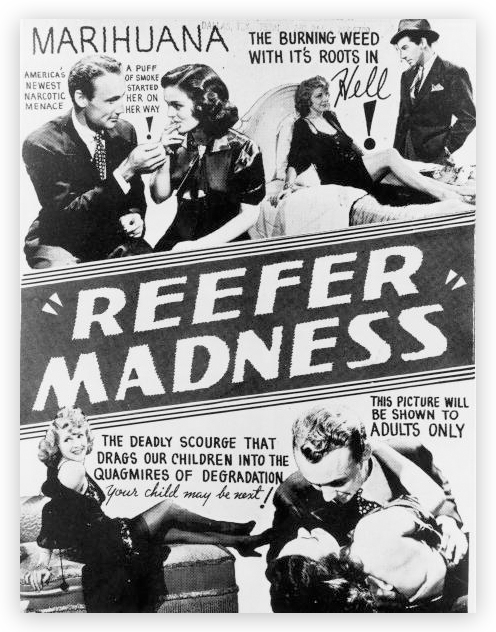We post news and comment on federal criminal justice issues, focused primarily on trial and post-conviction matters, legislative initiatives, and sentencing issues.

MARIJUANA BECOMING OFFICIALLY ‘COOL’
 The Justice Department last Tuesday said that it had recommended easing restrictions on marijuana in what could amount to a major change in federal policy.
The Justice Department last Tuesday said that it had recommended easing restrictions on marijuana in what could amount to a major change in federal policy.
A DOJ spokeswoman said the proposed rule, which hasn’t yet been made public, would downgrade marijuana from Schedule I to Schedule III, making it obtainable with a prescription.
The change does not end the criminalization of the drug. However, it is a significant shift in the government’s view of the safety and use of marijuana for medical purposes and reflects President Biden’s effort to liberalize marijuana policy in a way that puts it more in line with the public as increasingly more Americans favor legalizing the drug. The proposal would recognize the medical uses of marijuana and acknowledge it has less potential for abuse than some of the nation’s more dangerous drugs.
Rescheduling would not legalize marijuana outright for recreational use. But there can be little doubt that such a change–recreational cannabis (the politically popular term for marijuana) is now legal in 24 states–is coming.
The change may also lead to beneficial changes in Section 2D1.1 of the U.S. Sentencing Guidelines, where the base offense level for marijuana could drop in response to its falling from Schedule I to III.
In October 2022, Biden pardoned thousands of people convicted of simple marijuana possession under federal law and called upon regulators to review whether the drug should be reclassified, saying “it doesn’t make sense” that the government controls pot more tightly than cocaine or fentanyl.
 Once the Office of Management and Budget signs off, the DEA will take public comment on the plan to move marijuana from its Schedule I–alongside heroin and LSD–to Schedule III, alongside ketamine and some anabolic steroids. After public comment and review by an administrative judge, the agency will publish the final rule.
Once the Office of Management and Budget signs off, the DEA will take public comment on the plan to move marijuana from its Schedule I–alongside heroin and LSD–to Schedule III, alongside ketamine and some anabolic steroids. After public comment and review by an administrative judge, the agency will publish the final rule.
“Today, the Attorney General circulated a proposal to reclassify marijuana from Schedule I to Schedule III,” DOJ Director of Public Affairs Xochitl Hinojosa said in a statement. “Once published by the Federal Register, it will initiate a formal rulemaking process as prescribed by Congress in the Controlled Substances Act.”
The Los Angeles Times said, “Late last year, Biden pardoned people who were convicted of using marijuana on federal land. That tiny step was merely a down payment on his promise of decriminalization. So is the Justice Department’s most recent move. The federal government should pick up the pace.”
Some in the government may have done so. Last Wednesday, Senate Majority Leader Charles Schumer, (D-NY), Senate Finance Committee Chairman Ron Wyden (D-OR), and Sen Cory Booker (D-NJ) reintroduced the Cannabis Administration and Opportunity Act, legislation to end federal marijuana prohibition by removing it totally from the Controlled Substances Act.
The bill also aims to empower states to create their own cannabis laws; ensure federal regulations protect public health and safety; and prioritize restorative and economic justice, according to the sponsors.
 While the DEA’s move to reclassify marijuana is a “necessary step” that’s “long overdue,” Schumer said, it’s not the end of the story. “It’s not all we need to do,” he said. “It’s time for Congress to wake up to the times and do its part by passing the cannabis reform that most Americans have wished for. It’s past time for Congress to catch up with public opinion and to catch up with the science.”
While the DEA’s move to reclassify marijuana is a “necessary step” that’s “long overdue,” Schumer said, it’s not the end of the story. “It’s not all we need to do,” he said. “It’s time for Congress to wake up to the times and do its part by passing the cannabis reform that most Americans have wished for. It’s past time for Congress to catch up with public opinion and to catch up with the science.”
New York Times, Justice Dept. Recommends Easing Restrictions on Marijuana (April 30, 2024)
Wall Street Journal, Biden Administration Aims to Reclassify Marijuana as Less Dangerous Drug (April 30, 2024)
Associated Press, US poised to ease restrictions on marijuana in historic shift, but it’ll remain controlled substance (April 30, 2024)
Los Angeles Times, Editorial: Reclassifying marijuana is not decriminalization, but is a welcome step in that direction (May 1, 2024)
Cannabis Business Times, Senate Democrats Introduce Bill to Federally Legalize Cannabis (May 1, 2024)
– Thomas L. Root








